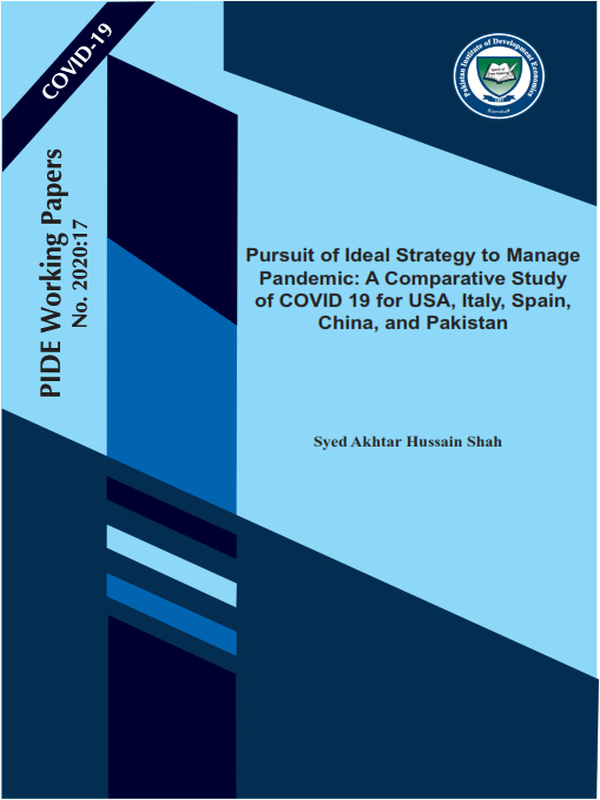Pursuit of Ideal Strategy to Manage Pandemic: A Comparative Study of COVID 19 for USA, Italy, Spain, China, and Pakistan
From the early times to the present, it is evident that epidemics have influenced human antiquity in numerous ways; categorised as demographic, social, economic, and biological. In the past some of major epidemics remained Plague, Cholera, Influenza, Spanish Flue, and Smallpox. Cholera epidemics emerged in early 19th century in India; Black Death with its impact on medieval Europe; virgin soil epidemics that ravaged native populations all over the world. Similarly, the effect of endemic infection on native people have a well-developed history. Authors such as Laurie (2000) expounded on the relation of poverty and politics that subsidises to renaissance of infectious diseases, and proposed a stimulating evaluation of the failure of public health in the former Soviet Union and situation of public health in the United States at the end of the Reagan Era. Author also predicts the threat of bio terrorism in future. Additionally, Diamond (1997), Elbe (2011) contend that geographical benefit steered to the expansion of agriculture and the taming of animals, which in turn preceded to settlement and crowd in diseases those in the New World never encountered before. Stuckler et al. (2013) criticises the measures to eradicate poverty soon after the emergence of financial crisis 2008 and claim that “in countries where austerity is dominant, we’re experiencing enormous and untested experiment on human health and left to count the dead”. Gutierrez et al. (2000) clarifies that due to global economy of scale, political processes with the advent of decrease in transportation costs there is increase in volume of trade.




